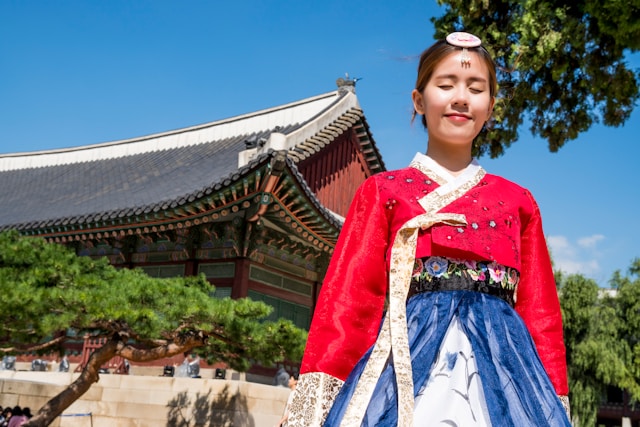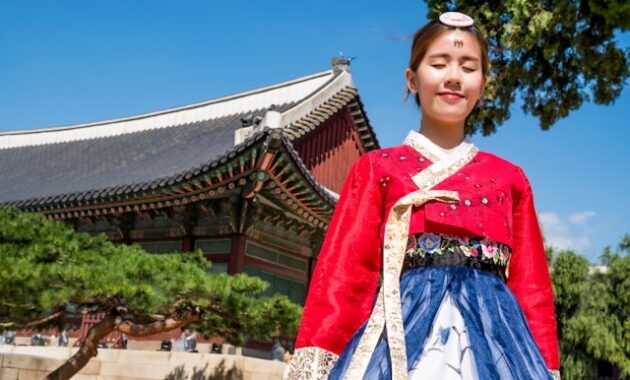
Seoul, the vibrant heart of South Korea, is a city that seamlessly merges ancient traditions with modern innovation. Its rich cultural heritage is celebrated through an array of unique traditions and festivals that captivate both locals and visitors. These cultural events offer a glimpse into Seoul’s identity, showcasing its history, art, and community spirit. Join us as we explore the captivating festivals and traditions that make Seoul a cultural kaleidoscope.
Seoul’s Heritage: A Blend of Ancient and Modern
Seoul’s culture is deeply rooted in its 5,000-year-old history, reflected in its well-preserved palaces, temples, and traditional neighborhoods like Bukchon Hanok Village. While the city pulses with high-tech innovation, its festivals highlight an enduring connection to the past, celebrating ancient customs in a contemporary setting.
The Grandeur of Traditional Festivals
1. Seollal (Korean Lunar New Year)
Seollal marks the beginning of the Lunar New Year, one of the most significant festivals in Korea. Families gather to honor ancestors, don traditional hanbok, and partake in rituals like charye (ancestral rites). The streets of Seoul come alive with cultural performances, games like yutnori, and special dishes such as tteokguk (rice cake soup), symbolizing a fresh start.
2. Chuseok (Korean Harvest Festival)
Known as Korea’s Thanksgiving, Chuseok is a time for gratitude and family reunions. Held during the harvest moon in autumn, Seoul’s residents visit ancestral graves, offer food, and celebrate with folk dances like ganggangsullae. The city’s cultural centers often host events where visitors can experience traditional games and cooking demonstrations.
3. Jongmyo Daeje (Royal Ancestral Rite)
Recognized as a UNESCO Intangible Cultural Heritage, Jongmyo Daeje is a solemn ritual honoring the spirits of Joseon Dynasty kings and queens. Held annually at Jongmyo Shrine, this festival features traditional court music (Jongmyo Jeryeak) and meticulously choreographed ceremonies. It is a profound reflection of Korea’s Confucian heritage.
Modern Festivals with Traditional Roots
4. Seoul Lantern Festival
The Seoul Lantern Festival illuminates the Cheonggyecheon Stream every November with an awe-inspiring display of colorful lanterns. Themes often revolve around Korean mythology and history, blending artistic creativity with cultural storytelling. Visitors can also craft their own lanterns, making the experience interactive and memorable.
5. Hanbok Culture Week

Hanbok Culture Week celebrates Korea’s traditional attire, the hanbok, with fashion shows, workshops, and exhibitions throughout Seoul. Participants can rent hanboks and enjoy free entry to historical sites like Gyeongbokgung Palace, creating a unique opportunity to immerse themselves in Korean culture.
6. Boryeong Mud Festival (Seoul Edition)
Originally held in Boryeong, the Mud Festival has a special version in Seoul. This lively event promotes health and wellness through mud-based activities, including wrestling and mud slides. Despite its playful nature, the festival incorporates cultural performances and markets showcasing local crafts.
Seasonal Celebrations: A Year-Round Cultural Extravaganza
Spring: Cherry Blossom Festivals
Seoul’s spring season is synonymous with cherry blossoms. Yeouido Spring Flower Festival transforms the city into a pastel wonderland with performances and food stalls. The backdrop of blooming trees and historical landmarks like Namsan Tower makes for a picture-perfect experience.
Summer: Dano Festival
Celebrated on the fifth day of the fifth lunar month, the Dano Festival emphasizes purification and health. In Seoul, the festival is marked by traditional swings, wrestling contests, and herbal rituals. Women often wash their hair with iris water for beauty and fortune.
Autumn: Fireworks Festival
The Seoul International Fireworks Festival lights up the Han River with dazzling pyrotechnic displays from global teams. It’s a modern spectacle with a nod to traditional celebrations of light, symbolizing hope and joy.
Winter: Christmas Markets
Though Christmas is not a traditional Korean holiday, Seoul embraces the festive season with European-style markets, ice-skating rinks, and dazzling light displays. Popular spots like Myeongdong and Dongdaemun Design Plaza offer a mix of seasonal cheer and Korean flair.
Unique Traditions That Define Seoul’s Identity
Traditional Tea Ceremonies
Tea culture remains an integral part of Seoul’s traditions, offering a serene escape from the city’s hustle. Places like the Bukchon Hanok Village host tea ceremonies, where participants learn about Korean tea etiquette and savor delicate blends in a tranquil setting.
Pansori: The Art of Korean Storytelling
Pansori, a UNESCO-recognized musical storytelling art, is performed at cultural hubs like the National Gugak Center. This unique tradition combines powerful vocals, rhythmic drumming, and compelling narratives, often exploring themes of love and resilience.
Kimjang: The Art of Kimchi-Making
Kimjang, the communal act of making and sharing kimchi, is a cherished tradition in Seoul. Families and communities gather annually to prepare this iconic Korean dish. Events like the Seoul Kimchi Festival invite visitors to participate and learn about this UNESCO-recognized cultural practice.
Exploring Seoul’s Cultural Hotspots
1. Gyeongbokgung Palace
As the grandest of Seoul’s five palaces, Gyeongbokgung hosts reenactments of the royal changing of the guard. Seasonal events like the Moonlight Tour allow visitors to experience its majesty under the night sky.
2. Insadong
A hub for traditional crafts and antiques, Insadong offers a glimpse into Korea’s artistic heritage. Street performances and workshops on calligraphy and pottery provide hands-on cultural experiences.
3. Namsangol Hanok Village
This living museum showcases restored traditional houses and offers programs like archery and hanbok rental, making it a favorite for cultural immersion.
Why Seoul’s Traditions and Festivals Matter
Seoul’s festivals and traditions are more than just celebrations; they are a testament to the city’s enduring spirit and cultural wealth. By preserving and evolving these practices, Seoul bridges its past and present, offering a rich tapestry of experiences for all who visit.